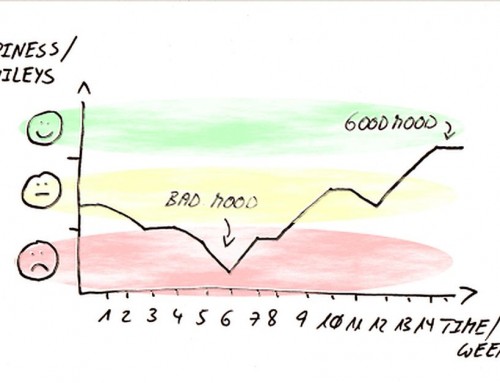Levels of Commitment
Giving and accepting commitment creates trust. I rely on your promise to be on a certain day for a certain time to support me. If you can't do this or do not show up I am disappointed. You are for me not a trustworthy person any longer. And all of a sudden commitment gets an ethical touch. Commitment is an act, not a word. - Jean-Paul Sartre.
Implications of Making Commitments
Commitments are the fundaments of all collaboration. You are not alone in a certain task, challenge or endeavour if I commit myself to support, to assist, or to help you. If I refuse or withdraw my commitment you are maybe lost.
Giving and accepting commitment creates trust. When getting a commitment, I rely on your promise to be on a certain day for a certain time to support me. If you can't do this or do not show up I am disappointed. You are for me not a trustworthy person any longer.
And all of a sudden commitment gets an ethical touch.
Commitment is an act, not a word.
Jean-Paul Sartre
Commitment is what transforms a promise into reality.
Abraham Lincoln
In the case of business and professional commitment addresses easily fairness, quality, honesty, team spirit, and success. To be committing to a certain subject X is a very personal stance. As a person, I either declare myself supporting to be responsible, or accountable to be X successful, or not. It's a binary decision for me. There is a distinct "Yes" or "No". Either I'm in or out. The question is: is it as binary as stated, or it is greyish-shaded, with multiple facets? The Core Protocols of Jim and Michele McCarthy are important to shed a prominent light on.
Levels of Commitments
In 2010 Jim and Michele McCarthy published their now famous "The Core Protocols". Their intention was to establish ground rules for teams to become great. In their former lives as Microsoft project managers being responsible for the Visual Studio C++ product suite development, the McCarthys had realized that a lot of issues in running SW projects are caused not by technical, but much more by people problems. Therefore, the McCarthy couple questioned themselves: "What conditions and environments made teams great? – What constitutes a high-performance team?" and started at Microsoft their research on this.
Finally, they came up with a two-stage approach. Jim and Michele distinguished fundamental commitments stating personal attitudes from related procedures and getting them done: Core Commitments, and Core Protocols (Core Protocol Stack). In this post, I will focus on Core Commitments only, see my other post for Core Protocols.
There are eleven Core Commitments building the basement of the Core Protocols. They establish the Core Protocol Stack consisting of eleven Core Protocols. Some of the Core Commitments can be split into more granular details. For more details about Core Commitments see the original posting.
Here are the 11 Levels of Commitment..
- „I commit to engage when present.” — This is the most crucial, most important and most difficultly realisable commitment. In easy words: If you show up be fully engaged. No side work or preparing other stuff in parallel. Either you are 100% in or you should leave — Check-Out (Right to Pass): Show your teammate the respect she deserves: "I'm 100% with you - I'll support our goal/team" or "Sorry, don't count on me".
To know and disclose what I want, what I think, and what I feel. — To always seek effective help. — To decline to offer and refuse to accept incoherent emotional transmissions. — When I have or hear a better idea than the currently prevailing idea, I will immediately either propose it for decisive acceptance or rejection and/or explicitly seek its improvement. — I will personally support the best idea regardless of its source.
- „I will seek to perceive more than I seek to be perceived.” — I ensure you I'll support you even if I won't get out of it as much as you. — A very altruistic momentum.
- „I will use teams, especially when undertaking difficult tasks.” — I rely on teamwork and cross-functional collaboration, not on heroic firefighting.
- „I will speak always and only when I believe it will improve the general results/effort ratio.” — I shut up if I can't/won't contribute value. — This is VERY, VEry, very difficult for alpha egomaniacs.
- „I will offer and accept only rational, results-oriented behaviour and communication.” — I ensure you, I'll keep personal emotions and animosities aside.
- „I will disengage from less productive situations.”
When I cannot keep these commitments. – When it is more important that I engage elsewhere.
- „I will do now what must be done eventually and can effectively be done now.” — I ensure you take the needed actions immediately.
- „I will seek to move forward toward a particular goal, by biasing my behaviour toward action.” — To reach the goal I'll focus on actions/activities.
- „I will use the Core Protocols (or better) when applicable.” — For me, the Core Protocols are a valuable instrument. To use it properly I'll use the Protocol Check protocol as often as needed.
I will offer and accept timely and proper use of the Protocol Check protocol without prejudice.
- „I will neither harm — nor tolerate the harming of — anyone for his or her fidelity to these commitments.” — This is for me a reminder that yes I am committed to these protocols, and also others.
- „I will never do anything dumb on purpose.” — It's actually a lot harder than it seems. It's in sync with behaving rationally, and unfortunately, in the corporate world, not everybody behaves rationally.
Further Readings
Books, Blogs
- Jim, Michele McCarthy: The Core Protocols. HTML, PDF, book (Amazon)
- Richard Kasperowski: The Core Protocols. A Guide to Greatness. Amazon 2015.
- Paul Sobocinski: Core Protocols and Mindfulness — Part 1, Part 2, via Medium.com, 2016
- Mu Qiao: Core Protocols: magic behind making good decisions quick, via Medium.com, 2017.
- Hannes Horn: An approach to build great (agile) teams, via Medium.org, 2016.
Communities
- Richard Kasperowski: Great People, Great Leaders, and Productive Teams. Website.
- GreatnessGuild.org - https://www.greatnessguild.org/
- LiveInGreatness.com - https://liveingreatness.com/
Presentations, Videos
- _Scrum Pulse Webinar: Ralph Jocham, The Core Protocols. Youtube, 2016.
- Peter Antman: Core Protocols. A workshop. Slideshare, 2016.
- Yves Hanoulle: The Core Protocols Zen. Slideshare, 2009.







Leave A Comment